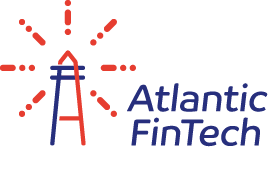Cracking the remote investment code: lessons worth sharing from SnapAP
As we collectively adapt to the new normal post the pandemic, we see surprising outcomes such as increased opportunities for remote investments.
Earlier, venture capital (VC) investors in the technology sector would reject companies that were headquartered far from their physical location. Now, there is a surge in the number of investors who are open to engaging with entrepreneurs they have never met before, and to closing fully remote deals.
When OMERS Ventures surveyed over 100 VC firms across North America and Europe, they found that 97% had completed a fully remote deal by January 2021. This is vastly different from the 40% in June 2020.
SnapAP is a cloud-based procurement-to-payment platform that streamlines workflow for mid-tier and enterprise market clients, and they were quick to take advantage of the new trend. They are Atlantic Canada’s first-ever example of a fintech startup receiving funding from primarily Israeli investors, and working with them remotely throughout the deal. Jean-Daniel (JD) Drapeau, SnapAP’s founding CEO, met his seed investors virtually and for the first time in 2020 over a Zoom call.

Jean-Daniel (JD) Drapeau, SnapAP’s founding CEO
JD Drapeau and Alicia Roisman Ismach, Head of Atlantic FinTech, sat down for a fireside chat to understand what this change means for innovation and to learn how a fintech in Atlantic Canada prepared to attract a VC from outside. Excerpts from it:
How did you build trust with the investor without meeting them in person? What was your homework?
We worked closely with Atlantic FinTech and the senior executives we met when we participated in the Money 20/20 conference in Las Vegas in 2019, as a part of the mission led by Venn Innovation. We benefited from a warm virtual introduction to the investors, from an industry expert. We built a connection through frequent video calls and open communication.
Did your investors have prior experience investing in the region?
No, they did not. They were not aware of our region's fintech companies, but they were open to exploring the opportunity. Investors tend to invest in the team and the story, and they happened to like ours. I learnt from this experience that if your company has value, investors will want to be a part of your journey, regardless of where you are both located.
What was your protocol and process for managing this remote investor relationship?
Open communication is critical, especially when building trust virtually. We used Zoom for the introduction call and whenever we needed a personal face-to-face experience. At all other times, we connected over WhatsApp to ensure a seamless, ongoing conversation. Opening multiple doors made it possible for both sides to be available for questions, to share information and more. We were also respectful of the time zone difference and were prepared to expected delays in responses.
Were cultural differences a barrier during the negotiations?
There were new learnings at both ends, theirs and ours. We adapted and ensured we were respectful of each other. Canadians are perceived as humble and polite, and I believe it played in our favour when engaging international investors.
What are your company's growth plans following this?
We are closing partnerships with global leaders in the industry to facilitate the delivery of our solution to corporations, globally. This is an exciting time and we hope this will accelerate our growth.
How has adding an international investor added to your value and scope?
As a fintech company, we could export right from the beginning and our business is focused on global markets. Having international investors has brought new perspective and industry knowledge that will contribute to SnapAP's growth.
There is a learning curve for everyone as we adapt to the new normal.
From SnapAP’s experience, here are the top 3 lessons for fintech entrepreneurs:
Adapt the way you communicate. Be proactive and make use of all digital communication resources, especially since you are establishing trust virtually. Increase touch points and hold accountability.
Understand cultural nuances before the first meeting.
Collaborate with several ecosystem players, like Atlantic FinTech, ACOA, BDC, ONB, Propel, NBIF, Innovacorp, among others, to increase impact. Collaboration, not competition, is key.

